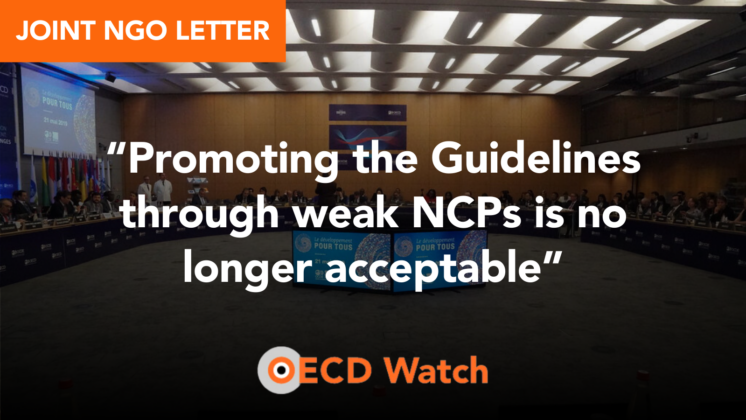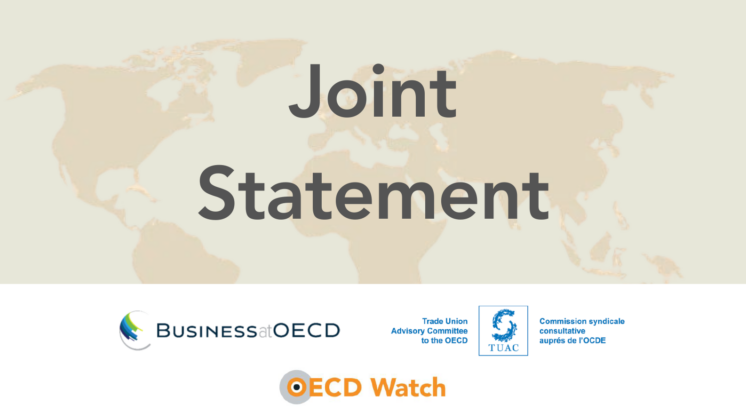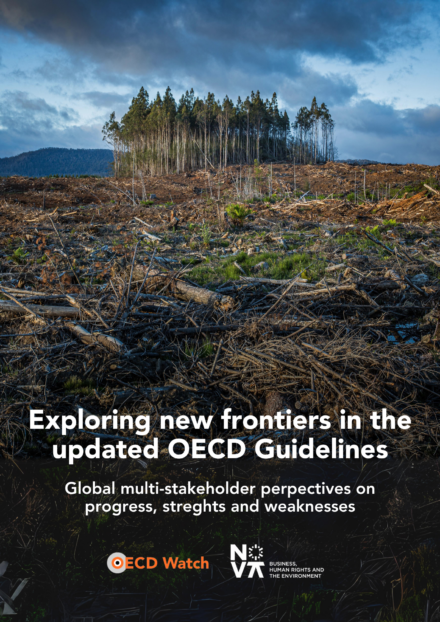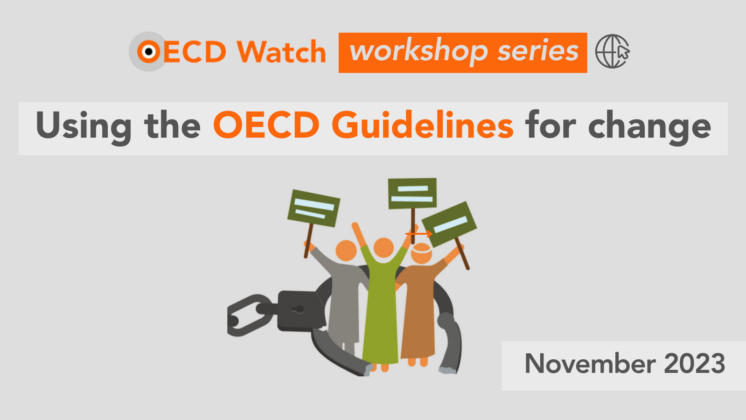OECD Watch and 130 NGOs from a broad range of groups have signed a letter calling for a greater civil society role in OECD policymaking and meaningful implementation of the OECD Guidelines in law. In the letter, civil society demands that the OECD and governments take meaningful action by:

1. Strengthening National Contact Points (NCPs),
2. Promoting binding law on RBC in line with the Guidelines as a baseline, and
3. Elevating the role of civil society, especially from the Global South, in advising OECD policymaking.
“Promoting the Guidelines through weak NCPs is no longer acceptable,” says Marian Ingrams, director of OECD Watch. “We call on the OECD and governments to strengthen NCPs, advance the standards through binding law, and ensure civil society expertise helps shape OECD policymaking on business conduct.”
Letter supporters include global organisations like Amnesty International, Oxfam, and Human Rights Watch, as well as local and grassroots groups, Indigenous Peoples representative groups, and groups focused on particular issues like workers’ rights, climate, or responsible investing.
The letter comes at a key time. It is released just before the 2024 Ministerial Council Meeting — the highest-level OECD meeting — and highlights the upcoming one-year anniversary of the revision of the OECD Guidelines. It also coincides with the EU’s process to adopt binding due diligence requirements through the Corporate Sustainability Due Diligence Directive (CSDDD).
For further details, please refer to the full letter below:
CSO Letter to OECD on Guidelines Implementation












